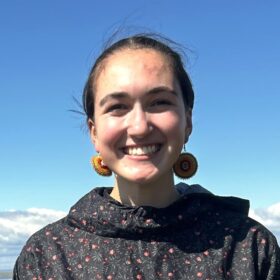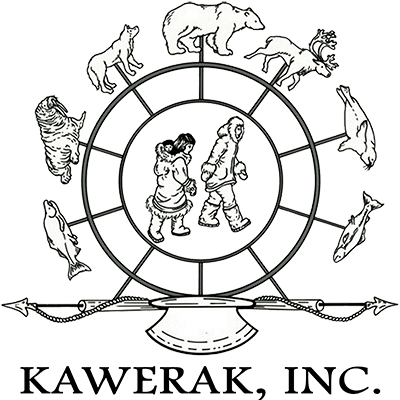What drew you to the Caleb Scholars Program?
The Caleb scholars program allows me to combine two of my passions that I frequently must pursue separately, environmental conservation and cultural connection. However, when pursuing environmental conservation, I am always guided by my connection to my culture, so I love that the Caleb Scholars program acknowledges the intertwining of these two areas and allows me to work within both.
What are your educational and career goals? How do your goals relate to environmental conservation?
As an Inuit person, environmental conservation is not just a cause, but an essential facet of my cultural identity. Pursuing a degree in Environmental Systems Engineering with a concentration in coastal systems, as well as a minor or double major in Native American Studies, reflects my commitment to acquiring the skills needed for effective conservation leadership. This educational path will provide me with both the technical expertise and cultural understanding necessary to effectively address environmental challenges within Indigenous communities. My ultimate goal is to return to coastal Indigenous communities in Alaska that are disproportionately impacted by climate change, in order to help these communities achieve self-sufficient sustainability. By integrating my heritage into my professional journey, I aim to ensure that my career choices uphold and support the well-being of Inupiaq people and our lands.
What does Inuit-led conservation advocacy mean to you?
The Inuit way of life, harmonious with the land, is naturally sustainable. Because we live on the land, we understand its needs as well as our own. We continuously strive to preserve balance with the environment, even as it changes, and have done so for thousands of years. To me, Inuit-led conservation advocacy means empowering Inuit people like myself to actively participate in decisions concerning the environmental conservation of our ancestral homelands. We possess the proper knowledge to make these decisions, and will suffer most if these decisions are not made. Drawing upon generations of rich traditional insight and sustainable practices, Inuit-led conservation advocacy is about safeguarding our cultural legacy tied to our deep connection to the land. It is fundamental to our way of life. This advocacy is crucial for preserving both our livelihoods and our intergenerational heritage, ensuring that environmental decisions align with our values and benefit our communities.
Please share a reflection of when you have felt a connection to the ocean or the
land.
When my grandfather, who is Inupiaq, passed away last year, my family decided that if his essence were to be reincarnated into an animal he would be a beluga whale. A couple of months later while commercial fishing with my father in Bristol Bay, and I looked out and saw what I thought was a seal playing in the water. It turned out to be a beluga, and after following it slowly in our skiff we found ourselves surrounded by an entire pod of beluga whales. We followed them from one family fishing site to another, watching them dive in and out of the water playfully before they sped off as soon as we arrived to our other site. It was a surreal and emotional experience, and in that moment I felt the presence and protection of not only my grandpa, but also of all of my ancestors who came before me.

